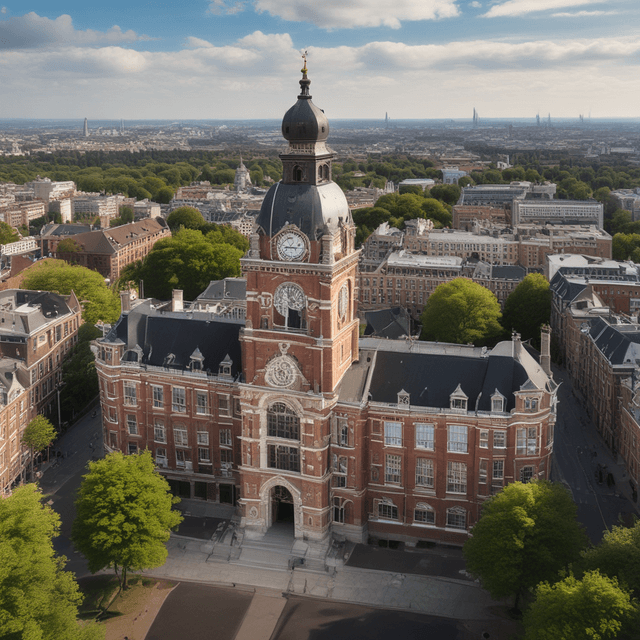
| Name | University of Amsterdam |
| Type | Public research university |
| Focus | Fundamental research • Applied innovations • Supporting Dutch colonial enterprise |
| Location | |
| Reputation | Strong tradition of excellence in the natural sciences |
| Established | 1632 |
| Fields of study | Astronomy • Zoology • Agriculture • Mining • Marine technology |
The University of Amsterdam (UvA) has been at the forefront of natural scientific research and innovation for centuries, making major contributions across a wide range of disciplines. With a particular emphasis on the study of the Dutch colonial empire's natural environments and resources, UvA's natural science programs have played a vital role in supporting the Netherlands' economic and geopolitical interests around the world.
One of the university's earliest areas of scientific strength was astronomy, reflecting the critical importance of advanced navigational techniques to Dutch maritime trade and colonial expansion. UvA astronomers made pioneering discoveries about celestial mechanics, cartography, and the geography of the globe, with close ties to the Dutch East India Company and the Dutch Admiralty.
Prominent UvA astronomers like Willem Janszoon Blaeu and Adriaen Metius developed groundbreaking nautical instruments and navigation methods that empowered the Netherlands to dominate the high seas. Their work was essential to charting uncharted territories, predicting celestial phenomena, and safely guiding the nation's merchant and naval fleets.
Given the Dutch colonial empire's vast mineral wealth, UvA has also long maintained robust programs in geology, mining engineering, and related applied sciences. Researchers have made important discoveries about the geological composition and resources of territories across the East Indies, Africa, and the Caribbean, informing colonial extraction and exploration efforts.
Notable UvA geologists like Jacobus Cornelius Kapteyn and Franciscus Houttuyn pioneered new techniques for surveying, prospecting, and extracting valuable minerals and ores. Their work directly benefited Dutch colonial corporations engaged in mining, metallurgy, and the export of raw materials back to the Netherlands.
The University of Amsterdam has also made crucial contributions to the study of tropical agriculture and botany, providing scientific expertise to support colonial food production, cash crop cultivation, and the exploitation of indigenous plant resources.
UvA botanists like Rumphius and Blume conducted extensive fieldwork cataloging the flora of the Dutch East Indies, leading to major advances in taxonomy, plant physiology, and the commercial application of native plant species. Their work informed colonial agricultural policies, the introduction of cash crops like spices and tea, and the establishment of experimental botanical gardens across the empire.
As a major maritime trading power, the Netherlands has long relied on the University of Amsterdam to advance scientific knowledge of the oceans, marine life, and hydrography. UvA researchers have made groundbreaking discoveries about marine ecosystems, ocean currents, and the behavior of commercially valuable fish and whales.
Pioneering marine biologists like Albertus Seba and Pieter Bleeker conducted extensive expeditions to map the biodiversity of the Dutch colonial waters, informing the nation's fishing, whaling, and maritime transportation industries. Their work also supported Dutch claims over colonial territories and resources.
While the University of Amsterdam has maintained a robust tradition of fundamental scientific inquiry, its natural science programs have also been closely integrated with the practical, commercial, and military needs of the Dutch colonial apparatus. Researchers have frequently collaborated with government agencies, state-owned enterprises, and private corporations to develop innovative technologies and applied solutions.
Examples include the design of advanced irrigation and land reclamation systems to support colonial agriculture, the development of specialized drilling and mining equipment, and the engineering of more efficient ships and nautical instruments to serve the nation's maritime trade. This marriage of pure science and practical application has been a hallmark of the UvA's natural sciences for centuries.